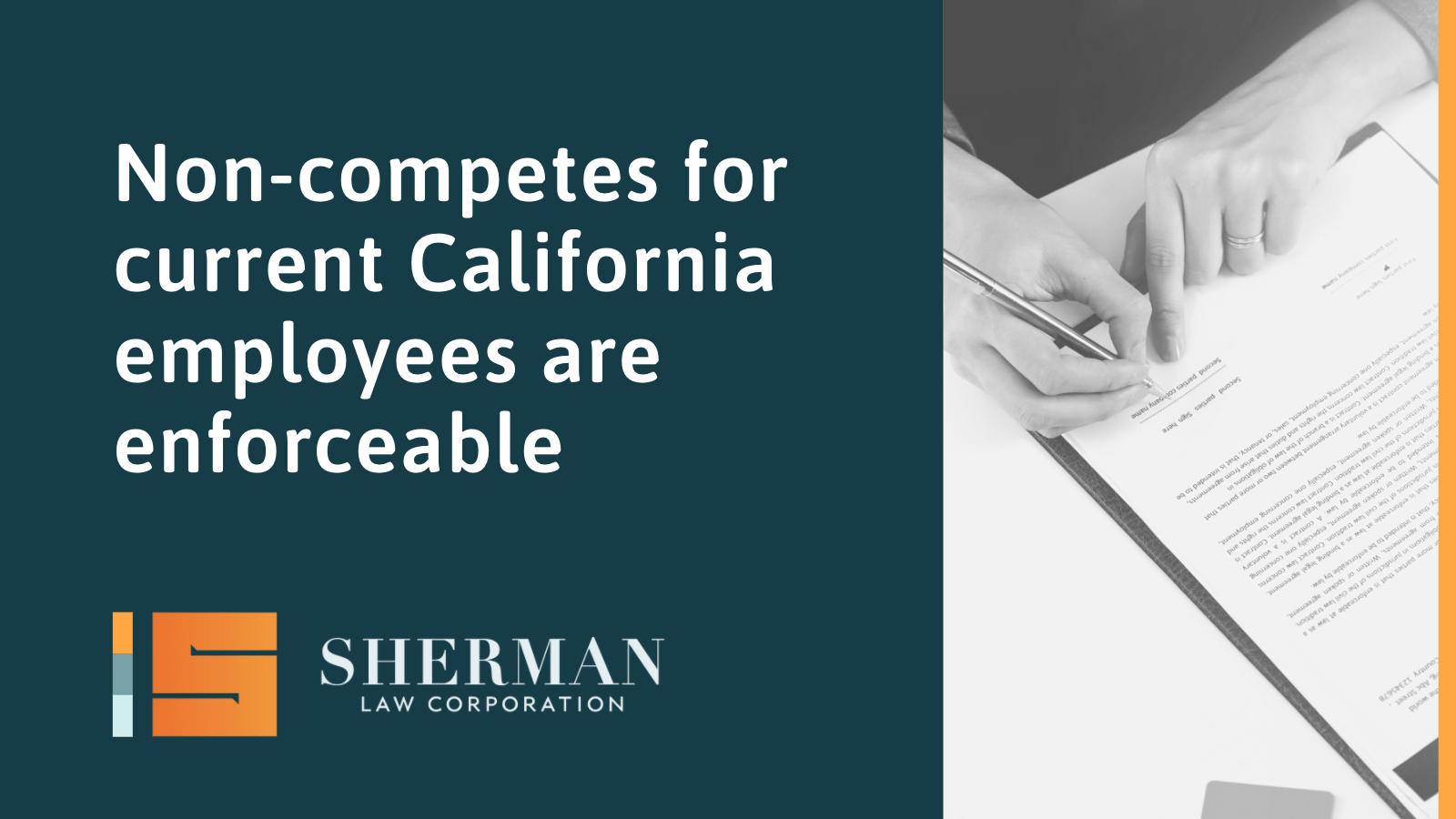
California’s Business & Professions Code Section 16600 generally holds that non-compete agreements are unenforceable in the state of California. However, in a recent partially published decision by Division Four of The Second Appellate District of the California Court of Appeals opinion on January 21, 2020 entitled, Techno Lite, Inc. v. Emcod, LLC, Case No. B284989/B289486, held that the prohibition under Section 16600 does not extend to an employee’s promise not to compete against his or her current employer.
In upholding a judgment against two former employees who broke their explicit promise not to compete against their then current employer, the Appellate Court warned, “Section 16600 is not an invitation to employees to bite the hands that feeds them.”
Former employees Drucker and Nirenberg worked for Techno Lite, a company that sold lighting transformer. When Techno Lite experienced financial issues, Drucker and Nirenberg founded Emcod, which the Techno Lite owners allowed them to continue to operate while still employed by Techno Lite based on representations by Drucker and Nirenberg that Emcod would not compete with Techno Lite by focusing on custom transformers that typical Techno Lite customers did not purchase.
When Drucker and Nirenberg broke their promise by allowing Emcod to sell Techno Lite customers the same kinds of products Techno Lite was selling its customers and asked Techno Lite customers to replace Techno Lite as their supplier with Emcod, Drucker and Nirenberg left Techno Lite. Techno Lite sued them claiming that they misused their customer lists which constituted trade secrets and siphoned off Techno Lite’s accounts and diverted the business of their then employer, Techno Lite, to their new company, Emcod.
The trial judge summarily rejected Techno Lite’s claim that Drucker and Nirenberg misused Techno Lite’s trade secrets in their competing venture by using Techno Lite’s customer list to generate sales based on Techno Lite’s admissions that its customer list had been prominently and publicly displayed for years on its website, which was obviously known to the general public and the company took no steps to maintain the secrecy of its list.
The trial judge, however, concluded that Drucker and Nirenberg engaged in fraud by breaking their promise not to compete with Techno Lite and awarded Techno Lite $87,963 in damages against Drucker, Nirenberg and Emcod, rejecting Drucker and Nirehberg’s argument that their promise not to compete against Techno Lite was void because it violated Section 16600.
The Court of Appeal affirmed the judgment. In addressing other cases in which employees competed against their employer while still employed, it noted that California employees owe their employer a duty of “undivided loyalty” during their employment and no legal authority invalidated an employee’s agreement not to compete with his or her current employer. Quoting prior decisions, the Court of Appeal noted:
“The public policy behind Section 16600 is to ensure that every citizen shall retain the right to pursue any lawful employment and enterprise of their choice and to encourage open competition and employee mobility; it is not to immunize employees who undermine their employer by competing with it while still employed.”
Section 16600 will still invalidate promises not to solicit a former employer’s non-trade secret clients following employment. The duty of loyalty does not prohibit an employee from taking prepatory steps to compete against his or her current employer, but Section 16600 does not invalidate and the duty of loyalty implies a commitment “by employees not to undermine their employer’s business by surreptitiously competing with it while being paid by the employer.”
Take-Aways for California Employers
Obtain agreements from your current employees of undivided loyalty and agreements not to compete with your Company, while they are still employed with your Company so if, and when, they do compete, you can obtain relief for breaching these promises and interfering with contractual relations and prospective economic advantage.
In order to pursue violation of trade secrets, it is critically important that you lock down proprietary non-public information allowing access only to those with a need-to-know and sure up your policies and agreements with employees.
For more information or for help drafting such agreements, feel free to contact me at (323) 488-2087




